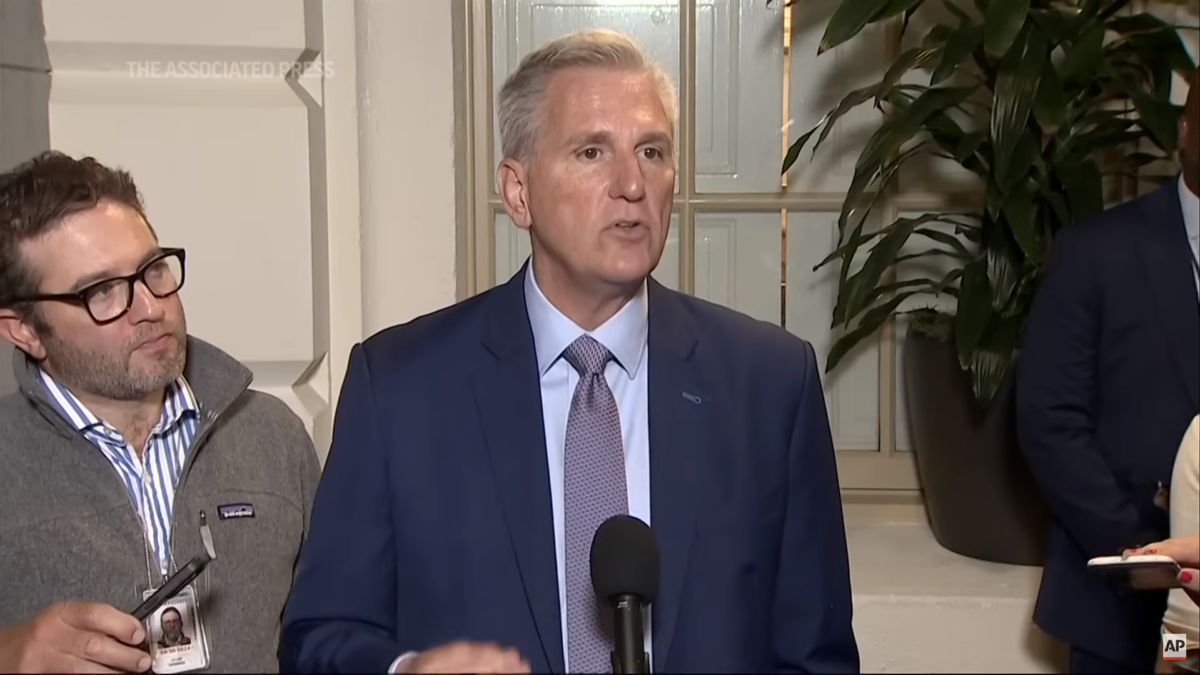
On the campaign trail for the Democratic presidential nomination, South Bend Mayor Pete Buttigieg tries to portray himself as a moderate politician. By running ads against implementing a single-payer health system, Buttigieg would have voters believe he rejects the radical leftism of socialist Sen. Bernie Sanders.
Don’t you believe it. Buttigieg recently released an aging and retirement plan that proposed massive amounts of new entitlement spending, with very little in the way of specifics to pay for all his ideas. It’s but the latest example of Democrats’ government giveaway train run amok.
CLASS Act ‘Ponzi Scheme’
The first part of Buttigieg’s paper talks about an “historic” new program, Long-Term Care America. The mayor claims this plan would provide aid to seniors “who require assistance with two or more activities of daily living….Benefits would be worth $90 per day for as long as [seniors] need care, and kick in after an income-related waiting period.”
Title VIII of Obamacare contained language establishing the Community Living Assistance Services and Supports (CLASS) program. But moderate Democrats attacked the proposal as unsustainable.
Prior to Obamacare’s enactment, Sen. Kent Conrad (D-N.D.), then the chairman of the Senate Budget Committee, called CLASS a “Ponzi scheme of the first order, the kind of thing Bernie Madoff would have been proud of.” Those concerns ultimately proved correct, as the Obama administration had to shelve the program as unworkable before it ever collected a dime in premiums.
As a Senate staffer conducting oversight on CLASS, and later as a member of the Commission on Long-Term Care tasked with examining possible replacements, I examined the program’s failure in minute detail. But at bottom, the program suffered from the same problem facing the Obamacare exchanges: Too many sick people signing up for benefits, driving up premiums, and therefore driving away healthy individuals.
Obamacare required individuals to pay into the CLASS program for only five years to qualify for benefits. Actuaries believed that people would sign up, pay a few thousand dollars in premiums over five years, and then collect benefits totaling tens of thousands of dollars or more. Just as Obamacare’s pre-existing condition provisions have priced millions of people out of coverage—because individuals can sign up for “insurance” after they develop a pre-existing condition—so too would CLASS have attracted people already suffering from disabilities, who by definition don’t need insurance so much as they need care.
The exchanges have remained somewhat sustainable only because of massive amounts of federal spending on subsidies and bailouts. However, Obamacare forced CLASS to become self-sustaining, without relying on federally subsidized premiums or a bailout. The Obama administration in October 2011 conceded that it could not meet these statutory requirements, and therefore shelved the program. (Congress later repealed CLASS outright in the “fiscal cliff” deal in January 2013.)
Buttigieg’s plan acknowledges none of this history, and makes no mention of solvency or sustainability when talking about his proposed new program. Perhaps limiting it to only those over age 65, and imposed a waiting period for people to receive benefits, as his proposal outlines, will make it more financially sustainable (or less unsustainable). But Buttigieg also proposes a $90 daily benefit, 80 percent richer than the CLASS Act’s $50 per day benefit, exacerbating solvency concerns.
Costly Promises
Buttigieg’s promise of a long-term care benefit says nothing about whether this new federal spending would increase the deficit, your taxes, or both. In that respect, it represents but one of the many costly promises in his retirement plan, including:
- An end to the two-year waiting period currently required for individuals receiving Social Security disability benefits to qualify for Medicare coverage;
- An increase in the minimum wage to $15 an hour, and new staffing requirements for nursing homes, all of which will raise costs to the Medicaid program; and
- An expansion of Social Security benefits—including a new minimum benefit and credit for caregivers—funded entirely by higher taxes on “the rich.”
At present, our federal government faces $23 trillion in debt, and trillion-dollar deficits as far as the eye can see. To put it bluntly, we can’t pay for the government we have now, let alone the new programs Buttigieg and his fellow presidential candidates have proposed.
Buttigieg can try to hide himself in the cloak of the “moderate” mantra all he likes. But his laundry lists of new and unsustainable entitlements represent nothing more than big-government liberalism.
This article has been edited after publication.









